Cash-for-work programme empowers Syrian refugees
More than 5,000 Syrian women and girls visit ‘Oases’ safe spaces in the Za’atari camp per month, and several hundred have independently earned incomes through UN Women’s work programme in Jordan.Date:
Nearly 80,000 of the Syrians who have escaped the deadly war raging in their country have sought shelter at Jordan’s largest refugee camp, Za’atari, where UN Women provides economic empowerment and protection programming for women and girls.
Operational since 2012, to date, UN Women runs three ‘Oases’ safe spaces for women and girls, which receive approximately 5,000 visitors per month, of which close to 1,000 are regular users. The spaces offer economic opportunities, protection referral services, day care services – to allow parents to work, and life skills such as Arabic and English literacy and computer classes.
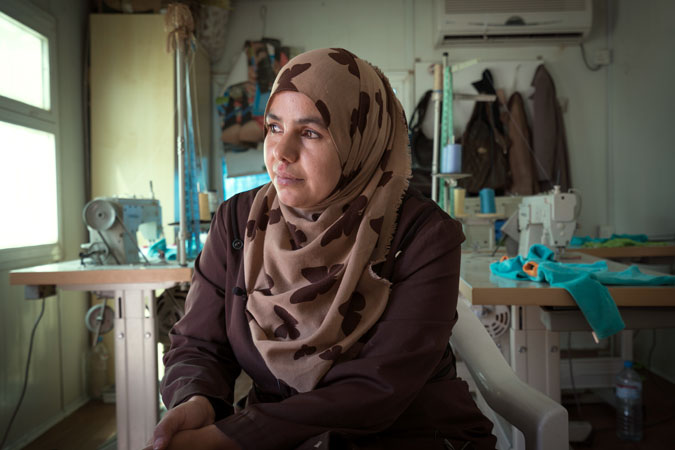
In addition to the work to meet women’s basic needs in the camp, UN Women facilitates and supports a women’s camp committee which meets with camp decision-makers on issues as diverse as camp security, food vouchers and hygiene—giving voice to women and men in the camp. This work serves to break the isolation women face in Za’atari camp, and provide them with skills, access to public space and economic independence.
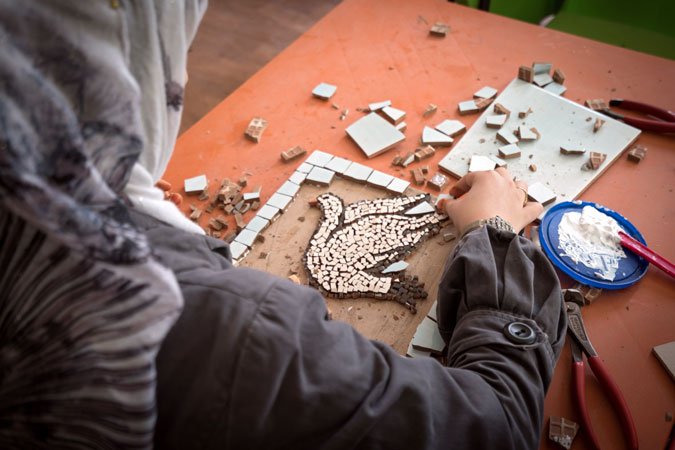
“After a year with each other [at the Oasis], we are now a single family,” said Nour, a 34-year-old woman who works as a tailor in the programme. “[In Syria] we face a lot of stress, having to deal with the death and bombing [of loved ones]. Here, we empty our negative energy,” added Sama, 22, who works as a craftswoman. “We entertain each other. We sing. We dance. We perform dabke [folk dance circles]. It’s better for us to be outside the house, engaged.”
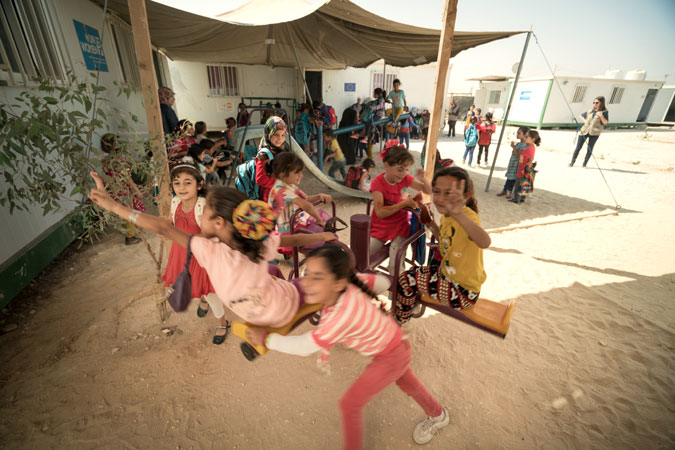
Cash-for-work opportunities include tailoring school uniforms, repurposing UNHCR tents into reusable bags, crafts-making, teaching, and working as beauticians, security guards and childcare professionals.
UN Women operates the Oases with funding from the Governments of Finland, Italy, Japan, the Netherlands and the Republic of Korea.
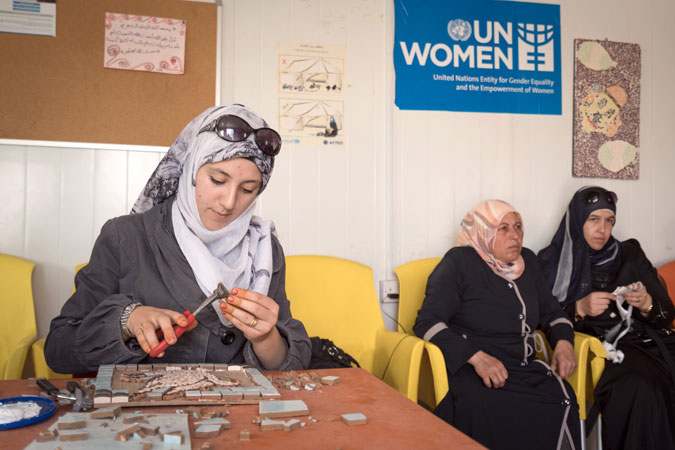
“UN Women Jordan is the largest focused cash-for-work provider in Za’atari refugee camp for women and girls. Many refugees have been residing in the camp for up to three years, and for women in particular camp life can be isolating, and characterized by increased threats of gender-based violence,” explains Giuseppe Belsito, Representative for the UN Women Country Office in Jordan. “Through the work carried out by our Oasis’ Centres, we provide women and girls with the opportunity to break the chain of isolation and gain economic independence to meet basic household needs. We give them the opportunity to restore their dignity.”
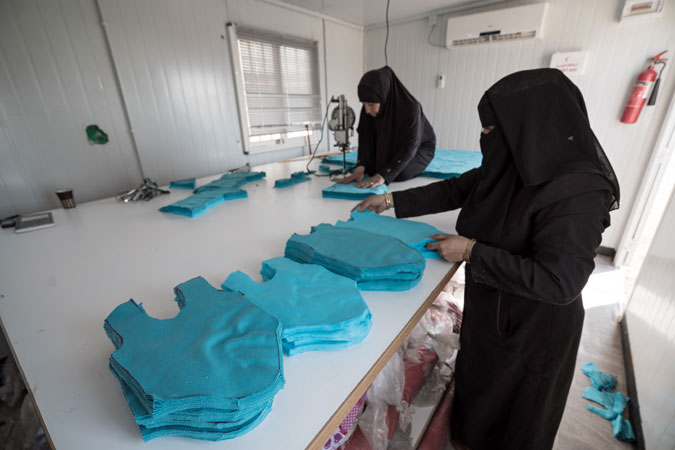
“[Cash-for-work] helped me understand my self-worth. I go to the centre, and my family awaits my return,” said 46-year-old Reema, who works in the Oasis hairdressing workshop. “It makes me feel like I am a useful person; a useful member of my society.”
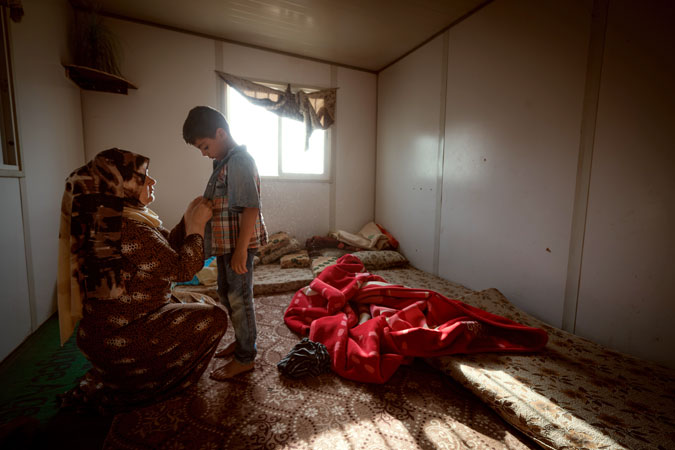
The unique contribution of UN Women stems from an integrated strategy that takes into consideration the critical links between humanitarian action and development efforts to sustain transformational change in the lives of women and their communities.
Read our In Focus section on the 15th anniversary of resolution 1325